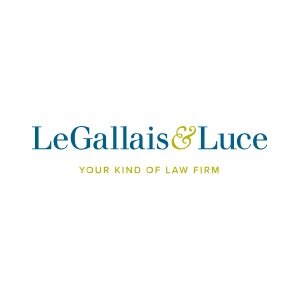Best Toxic Mold Lawyers in Saint Helier
Share your needs with us, get contacted by law firms.
Free. Takes 2 min.
List of the best lawyers in Saint Helier, Jersey
About Toxic Mold Law in Saint Helier, Jersey
Toxic mold is a growing concern for residents in Saint Helier, Jersey, given its potential impact on health and property. Mold can develop in damp, poorly ventilated areas, and prolonged exposure to toxic mold may lead to health issues such as respiratory problems, allergic reactions, and other serious ailments. As awareness of these health implications rises, so does the importance of understanding legal rights and responsibilities related to mold in residential and commercial properties.
Why You May Need a Lawyer
Though some mold problems can be managed without legal intervention, there are circumstances where consulting a lawyer is advisable. Common situations include disputes between tenants and landlords over mold remediation responsibilities, health-related claims resulting from mold exposure, property damage claims, and issues with contractors regarding improper construction or repair work leading to mold growth. A lawyer specializing in toxic mold can help navigate these complex and challenging situations.
Local Laws Overview
In Saint Helier, Jersey, legal accountability in matters involving toxic mold often revolves around property maintenance obligations and health safety standards. While specific "mold laws" may not be detailed, tenants’ rights under housing laws, negligence statutes, and contractual obligations can encompass mold-related issues. Property owners and landlords typically must ensure environments are safe and fit for occupancy, which includes addressing mold hazards. Understanding these laws is crucial for both tenants and property owners when handling incidents of toxic mold.
Frequently Asked Questions
What is toxic mold?
Toxic mold refers to certain types of mold that produce mycotoxins which can be harmful to human health. The most known example is Stachybotrys chartarum, often found in damp, wet areas.
What are the health risks associated with toxic mold?
Exposure to toxic mold can cause a range of health issues, including respiratory problems, skin irritation, headaches, and more severe allergic reactions. Those with compromised immune systems might experience more severe health effects.
What should I do if I find mold in my home?
If you discover mold, it’s important to identify and fix the source of moisture, remove the mold, and prevent regrowth. Keep records and photographs of the mold growth in case legal action is necessary.
Can I file a lawsuit if I've developed health issues due to mold exposure?
Yes, if you can prove that your health issues are directly linked to mold exposure and that there was negligence involved, such as a landlord ignoring the problem, you may be able to pursue a legal claim.
Is my landlord responsible for fixing mold issues?
Landlords have a general duty to provide safe and habitable living conditions. They may be responsible for addressing mold issues depending on what caused the mold and any relevant lease agreements and legal standards.
What are my legal rights as a tenant regarding toxic mold?
Tenants in Jersey have the right to live in a property that meets basic health and safety standards. If mold issues arise and a landlord is unresponsive, legal action might be an option under housing and negligence laws.
Who is liable for mold damage in a commercial property?
This typically depends on lease terms and the cause of the mold. Tenants and landlords or property owners may share responsibilities based on the lease and circumstances that led to mold development.
Can contractors be held liable for mold problems?
If faulty workmanship or use of inappropriate materials by a contractor results in mold growth, they may be held liable for resulting damage and health issues under local negligence and contract laws.
What kind of evidence is needed in a toxic mold case?
Evidence such as photographs, health records, mold inspection and testing reports, communication records with landlords or contractors, and expert testimony can all be crucial in a toxic mold case.
How can a lawyer help me with a toxic mold issue?
A lawyer can help by assessing your case, advising on legal rights and options, representing you in legal proceedings, and ensuring you pursue all available avenues for compensation or remediation.
Additional Resources
For assistance on mold issues, consider reaching out to local environmental health authorities or organizations offering guidance on tenant rights. The Jersey Citizens Advice Bureau and environmental health services can also provide initial advice and support. Professional mold inspection and remediation companies are also valuable resources for addressing mold concerns effectively.
Next Steps
If you require legal assistance with a toxic mold issue, start by consulting with a lawyer experienced in environmental health or property law in Jersey. They can assess your case and guide you through potential legal actions. Additionally, document any mold-related issues thoroughly and maintain all relevant records, as this information will be beneficial in your legal proceedings.
Lawzana helps you find the best lawyers and law firms in Saint Helier through a curated and pre-screened list of qualified legal professionals. Our platform offers rankings and detailed profiles of attorneys and law firms, allowing you to compare based on practice areas, including Toxic Mold, experience, and client feedback.
Each profile includes a description of the firm's areas of practice, client reviews, team members and partners, year of establishment, spoken languages, office locations, contact information, social media presence, and any published articles or resources. Most firms on our platform speak English and are experienced in both local and international legal matters.
Get a quote from top-rated law firms in Saint Helier, Jersey — quickly, securely, and without unnecessary hassle.
Disclaimer:
The information provided on this page is for general informational purposes only and does not constitute legal advice. While we strive to ensure the accuracy and relevance of the content, legal information may change over time, and interpretations of the law can vary. You should always consult with a qualified legal professional for advice specific to your situation.
We disclaim all liability for actions taken or not taken based on the content of this page. If you believe any information is incorrect or outdated, please contact us, and we will review and update it where appropriate.










